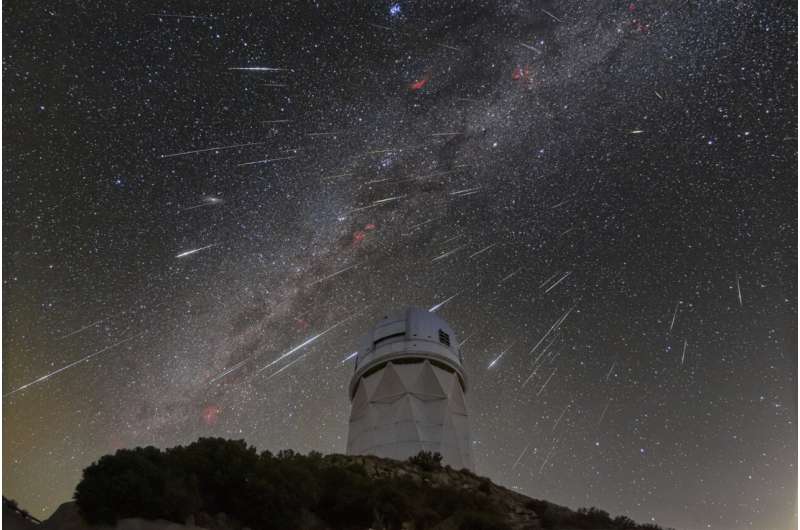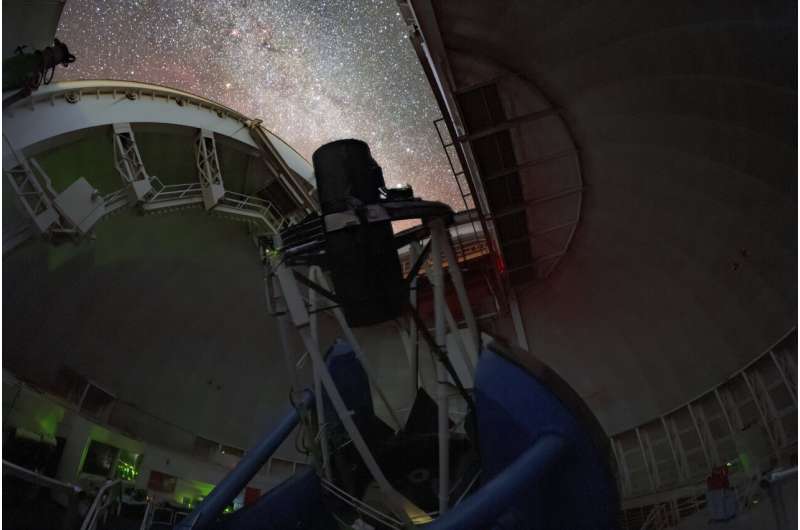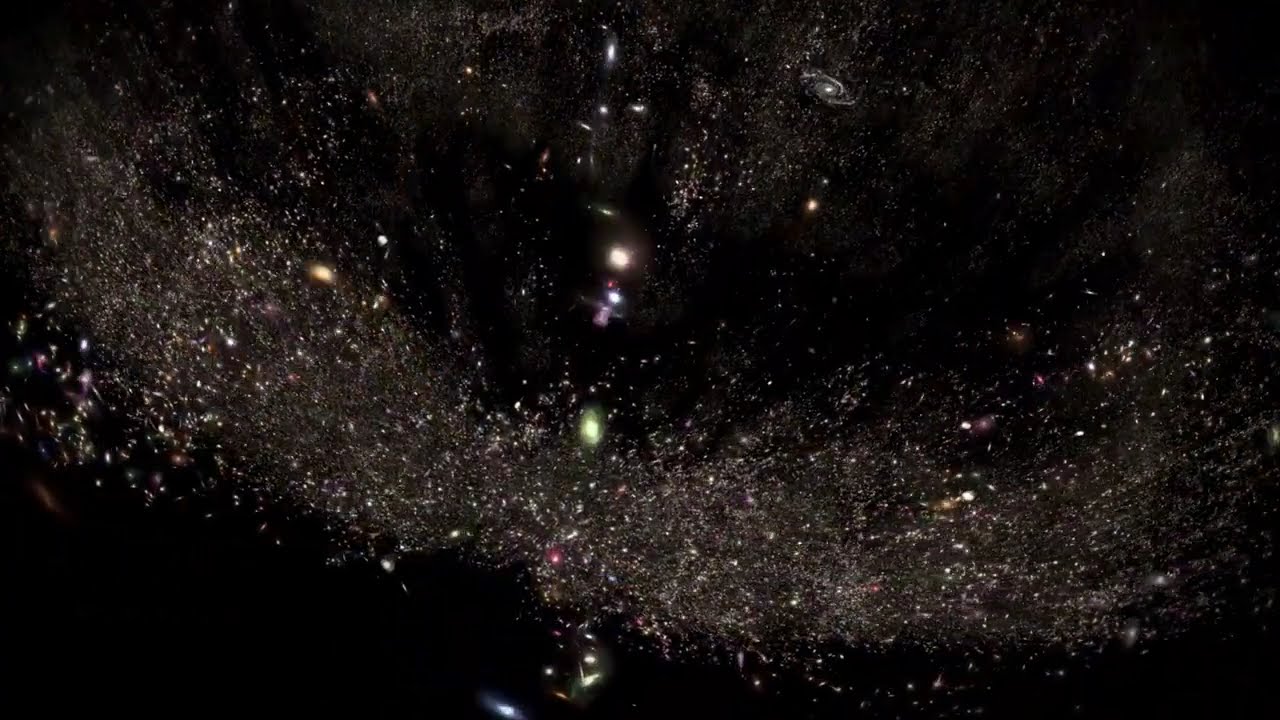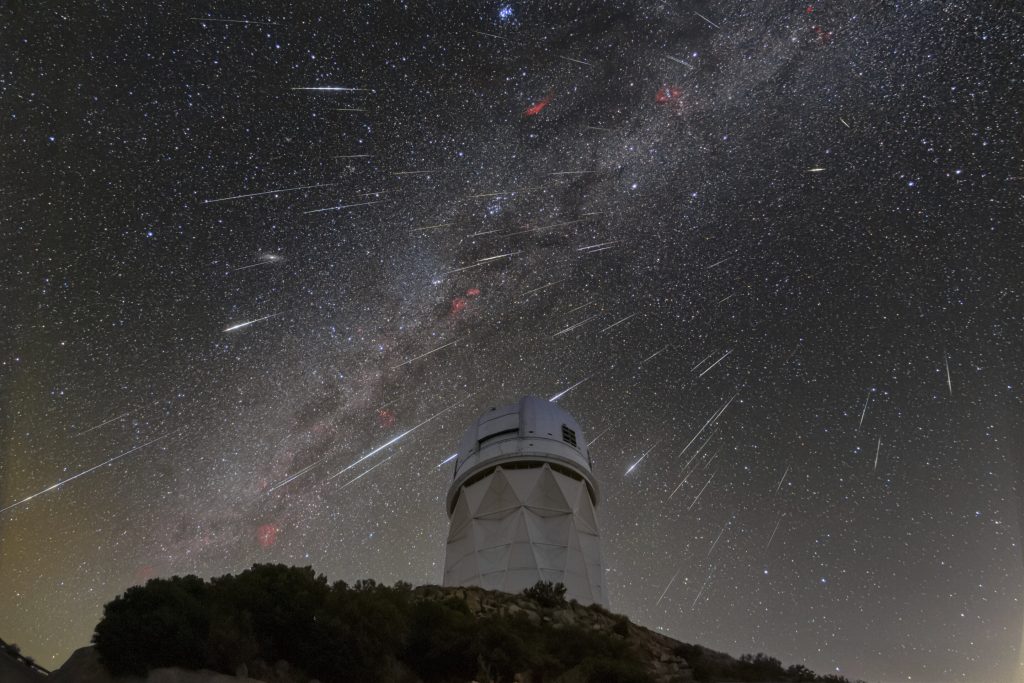
Distant, ancient galaxies are giving scientists more hints that a mysterious force called dark energy may not be what they thought.
Astronomers know that the universe is being pushed apart at an accelerating rate and they have puzzled for decades over what could possibly be speeding everything up. They theorize that a powerful, constant force is at play, one that fits nicely with the main mathematical model that describes how the universe behaves. But they can’t see it and they don’t know where it comes from, so they call it dark energy.
It is so vast it is thought to make up nearly 70% of the universe—while ordinary matter like all the stars and planets and people make up just 5%.
But findings published earlier this year by an international research collaboration of more than 900 scientists from around the globe yielded a major surprise. As the scientists analyzed how galaxies move they found that the force pushing or pulling them around did not seem to be constant. And the same group published a new, broader set of analyses Tuesday that yielded a similar answer.
“I did not think that such a result would happen in my lifetime,” said Mustapha Ishak-Boushaki, a cosmologist at the University of Texas at Dallas who is part of the collaboration.
What is the DESI collaboration?
Called the Dark Energy Spectroscopic Instrument, it uses a telescope southwest of Tucson, Arizona to create a three-dimensional map of the universe over 11 billion years to see how galaxies have clustered throughout time and across space. That gives scientists information about how the universe evolved, and where it might be heading.
The map they are building would not make sense if dark energy were a constant force, as it is theorized. Instead, the energy appears to be changing or weakening over time. If that is indeed the case, it would upend astronomers’ standard cosmological model. It could mean that dark energy is very different than what scientists thought—or that there may be something else altogether going on.
“It’s a time of great excitement, and also some head-scratching and confusion,” said Bhuvnesh Jain, a cosmologist at the University of Pennsylvania who is not involved with the research.
The collaboration’s latest finding points to a possible explanation from an older theory: that across billions of years of cosmic history, the universe expanded and galaxies clustered as Einstein’s general relativity predicted.

Is dark energy dead?
The new findings aren’t definitive. Astronomers say they need more data to overturn a theory that seemed to fit together so well. They hope observations from other telescopes and new analyses of the new data over the next few years will determine whether the current view of dark energy stands or falls.
“The significance of this result right now is tantalizing,” said Robert Caldwell, a physicist at Dartmouth College who is not involved with the research, “but it’s not like a gold-plated measurement.”
Why does dark energy matter?
There’s a lot riding on the answer. Because dark energy is the biggest component of the universe, its behavior determines the universe’s fate, explained David Spergel, an astrophysicist and president of the Simons Foundation. If dark energy is constant, the universe will continue to expand, forever getting colder and emptier. If it’s growing in strength, the universe will expand so speedily that it’ll destroy itself in what astronomers call the Big Rip.
“Not to panic. If this is what’s going on, it won’t happen for billions of years,” he said. “But we’d like to know about it.”
© 2024 The Associated Press. All rights reserved. This material may not be published, broadcast, rewritten or redistributed without permission.
The dark energy pushing our universe apart may not be what it seems, scientists say (2024, November 23)
retrieved 23 November 2024
from https://phys.org/news/2024-11-dark-energy-universe-scientists.html
part may be reproduced without the written permission. The content is provided for information purposes only.




